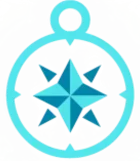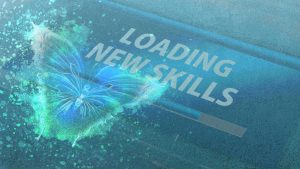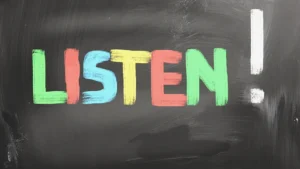“This Above All:
To Thine Own Self Be True.”
W. Shakespeare, Hamlet
Choosing Paths: Unlocking Potential
Choosing a career path is a meaningful responsibility and a lifetime discovery journey. It usually begins with a simple list of personal strengths or questions about wishes, preferences, desires, but also dislikes and personal boundaries.
One of the most important questions to answer when choosing a professional path is a simple one: “What do you enjoy doing?” The difficulty in authentically answering this question lies in the effort involved in understanding and mastering our strengths and weaknesses.
Also, most of us are not familiar with the mandatory knowledge and skills required for the profession we aspire to. Fortunately, there are a lot of personality assessment tools, and some of them are free to use, like personal values questionnaires or free personality tests like the DISC, MBTI, and BIG5.
Our Aspirations and Career Paths
Some studies show that for early career professionals, the confidence drive in a career choice is a crucial step towards professional success to the degree that it affects career paths and earnings.
Sometimes personal preferences, or better yet, our wishes or aspirations, play a key role in the decision-making process. Another study about personality and career roles shows that personal preferences play the role of a mediator between personality traits and career achievements.
So, the chances of being content with the chosen professions will be higher if personal preferences are in alignment with the personal traits and chosen paths.
The ancient Greek aphorism Know Thyself becomes a fashionable and challenging personal development question. Understanding personal values, ideals and principles that drive our choices in life proves to be an important advantage for professional growth.
The Personality Match
Researchers use personality assessments to measure theoretical constructs related to work behaviours, with a focus on personnel decisions, learning plan design, career coaching, annual reviews, etc. The results of these tests are assessment reports that label people as introverts or extroverts, achievers, performers, decision-makers, artisans, and give skill scores, general tendencies, etc.
Usually, the methodology involved uses batteries of questions to classify personality traits, and basically, assessment researchers write questions so that the answers received can be easily fit into their response categories.
It’s the magic of classification that makes large concepts look easier to fit into certain categories. But, this magic might be just an illusion that people belong to a certain successful or less successful psychological or occupational category. We can’t be sure that people only fit into the category of achievers, performers, learners, introverts, extroverts, or whatever the profiles suggest.
People react differently to the assessment results, starting with crying because their life dream just got shattered, shouting in anger because the test was completely wrong, laughing because the result was a validation, or being indifferent because it was completely irrelevant to them.
So, assessments are not a verdict restricting the freedom to choose a profession that only values certain traits or skill sets. Tests are just that, tests with potential benefits and limitations related mostly to cultural or regional differences.
Choosing Paths – A Self-discovery Journey
People’s personalities are complex and cannot easily fit into a single model or matrix. When it comes to choosing career paths, one type of assessment tool might not be enough. Even if there are complex investigation methods and they offer some insights related to our natural tendencies, the provided profile reports are just a guide.
Choosing a profession is an individual responsibility, and we definitely can’t blame the tests for this choice. This self-discovery journey can begin with a simple list of strengths and weaknesses or questions about our preferences and challenges.
However, no matter what we choose, the know-thyself wisdom is a self-assessment and a safe path to take because no one else knows our likes and dislikes better than ourselves.




